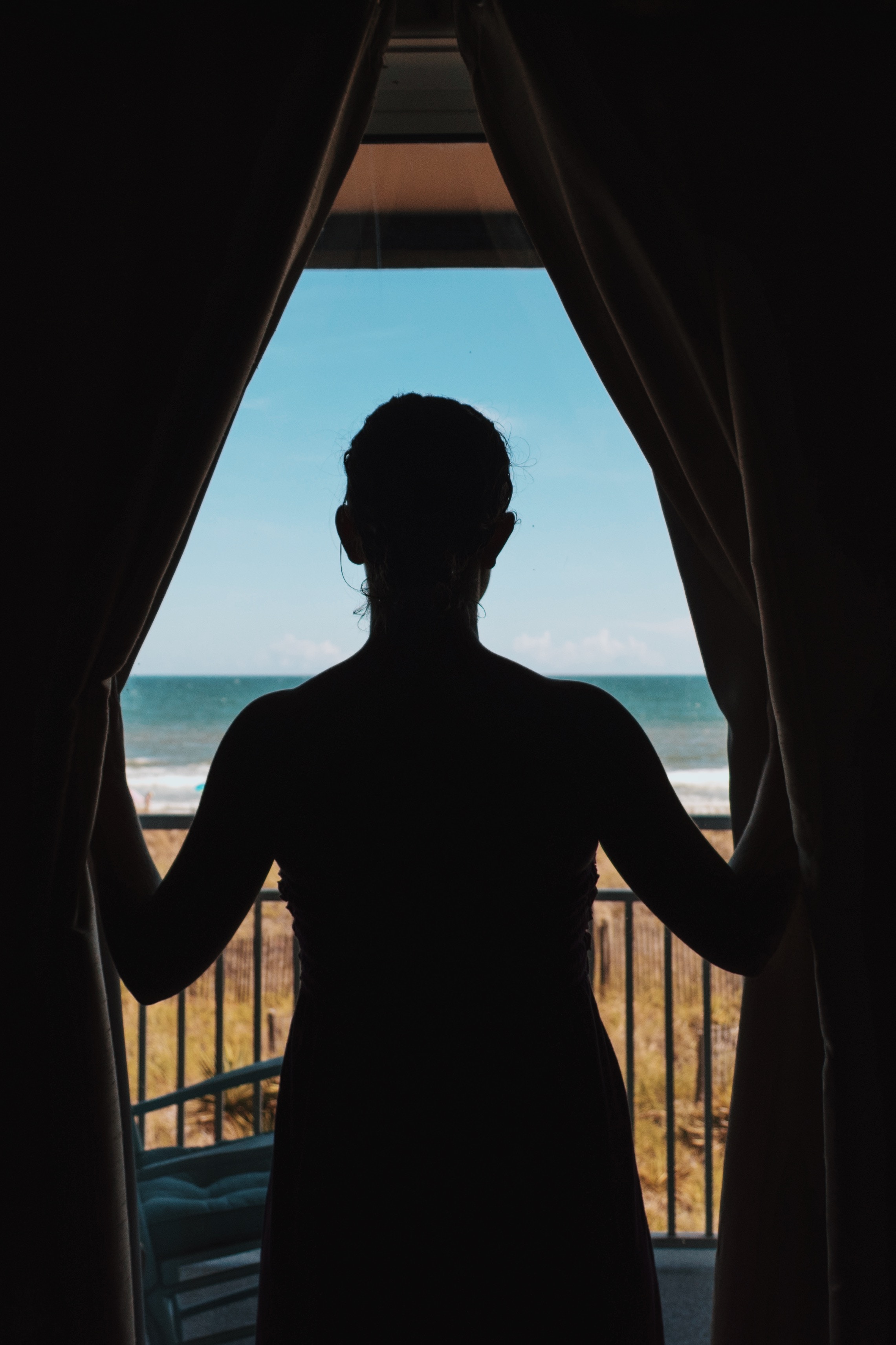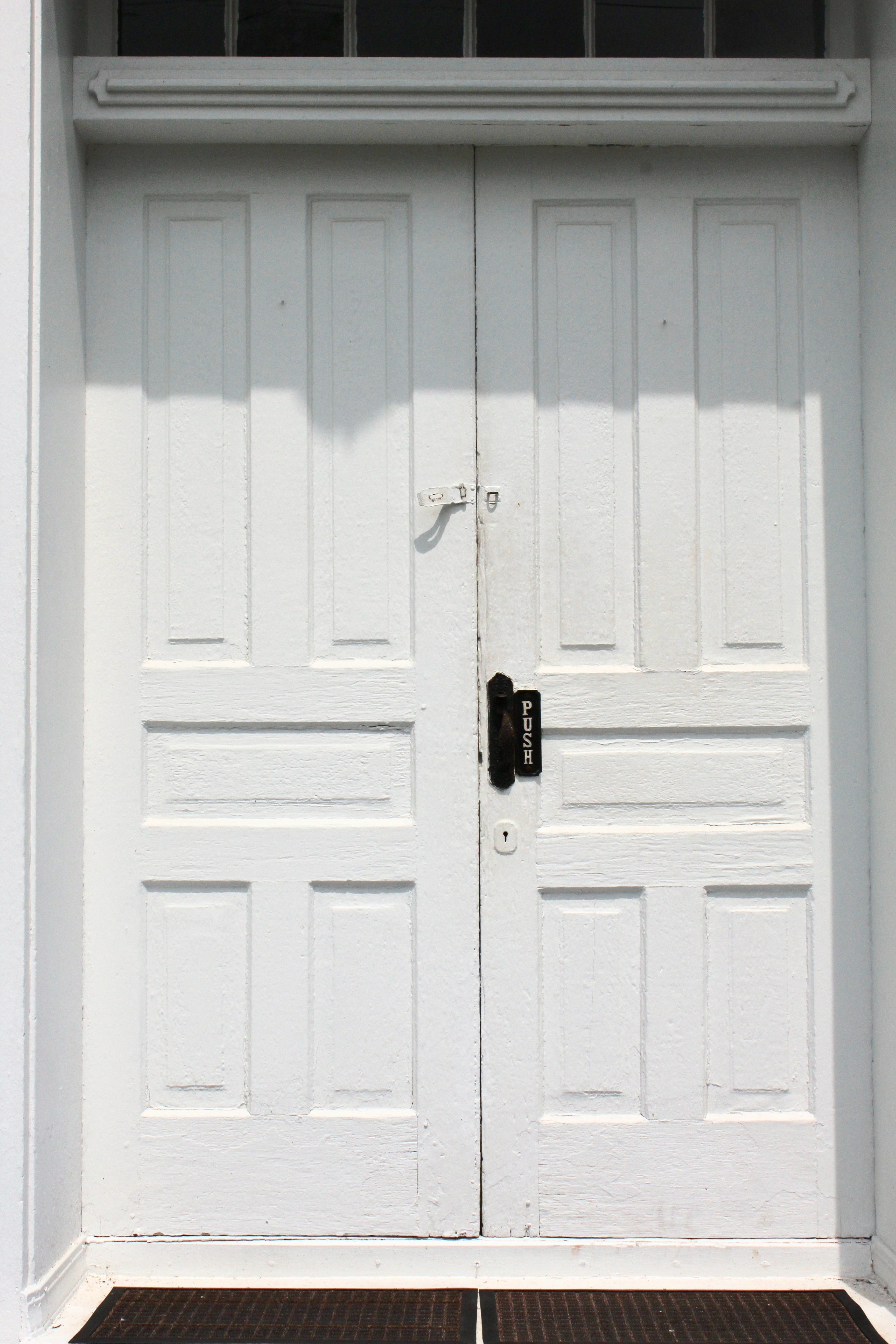
French doors are a stylish and convenient option for almost any property. They offer more space than a standard single door, and they are easy to install and generally low maintenance too. This makes them a good option for homeowners that want something that little bit different, but who don’t want to fit sliding or bifold doors.
Why limit yourself to a standard single door for your main entrance? French doors offer a nice big open space, and they can make your lobby or porch feel more welcoming – or more imposing – depending on the style you choose.
If you have a family of active kids, why not consider French doors to the side of the property, so that your kids can get their scooters and bikes in and out of the house with ease? Or, use them at the rear of the property to open out onto a lovely garden.
French doors have traditionally been popular for patios, but they can be a stunning addition to any balcony, or used in the place of sliding or bifold doors on a conservatory. Anywhere that you would normally have a single door or a sliding door is a place where French doors could fit well – the only limit is your imagination.

Photo by Spencer Pugh on Unsplash
If you have a small porch or entryway, you could double up on French doors – with one external set of French doors, and a second inner set, to give the feel of a small conservatory, without needing an extra extension. French doors can be liberating, giving you freedom of movement, and making even the smallest space feel more inviting.
The beauty of French doors is that you can choose from a wide range of sizes, so even if you live in a relatively small property you can still enjoy the look and feel of them on a smaller scale. It’s nice to have two large doors and a double-sized opening, but you can purchase smaller doors and enjoy a similar look.
French doors can be made from:
Wood frames are the most popular, but if you choose wood for an external French door you will need to make sure that it is weather treated so that it does not warp or swell in the rain. If you opt for UPVC, then you will not need to worry about warping, but the material may discolour or become brittle with prolonged exposure to the sun. Many people opt for aluminium, or for engineered wood which is highly weather resistant. Check our guide to buying french doors for more information on the materials available.

French doors date back to the 17th century, where they were actually used as windows, rather than traditional doors. They have remained popular for hundreds of years because they work so well for making a room appear larger, and they are great for flooding a space with natural light. They can be decorative in and of themselves, or they can be used with blinds or curtains for extra privacy.
French doors can open in or out, and they can be used both internally or externally. They can be panelled or feature glass inserts, and they can be either single or double – although what most people think of when they hear the term “French door” is a set of double doors with large glass panes. This versatile design will work well in almost any setting.
In the past, French doors had a reputation for being rather insecure. This may have been true historically, but it is most certainly not the case for modern designs. French doors have large glass panels, and with older, single pane designs those panels were a point of vulnerability. Modern doors are made with reinforced or double glazed glass, which makes them far more secure.
French doors usually come with a robust lock on one side, while the other door has a ‘dummy handle’. For added security, you should consider having a three-point locking mechanism fitted to the door. This will stop any would-be intruders from forcing the door open. In addition, make sure that the doors are fitted correctly, with the hinges on the inside, not the outside, and screwed into the frame with screws that are at least three inches long.
External French doors should be made from double glazing, with thick hardwood – not just for the cosmetic appearance of the wood, but for how strong and durable the wood is as well. This will help with both security and insulation.
Older models of French doors were often considered to be poor from an insulation point of view as well. Modern French doors, however, are made to comply with the latest building regulations, which means that they have good thermal performance. They typically feature double glazing (or sometimes even triple) with coatings that help to trap even more heat. This means that you can fit them to the front or rear of your home, confident that you won’t be wasting energy.
Expanding an existing single doorway to fit French doors will require some work, but it is usually a fairly simple job, and the good news is that you will not usually need planning permission to have that work done. There may be exceptions if you live in a listed property or a conservation area, or if you have had some other work done on the property that you needed to apply for planning permission for – as that work may have had conditions attached to it. For this reason, it is worth double checking before you start work.
In most cases, expanding a door or even getting a new one fitted is not considered to be an improvement for which planning permission is required. So, if you’re looking to brighten up your home and make it feel more spacious, then you should find that this is a quick and easy way to do it!
If you purchase the latest designs of French door, then you can be confident that the door itself is well-made and that it will protect your home from intruders. If, however, you want to make doubly sure that your home is safe and secure, consider using added security screens (to deter intruders) and an alarm system for extra peace of mind.
It is easy to hang French doors into an existing opening, and the doors can open in or out, depending on your preference. Usually, external doors will open inwards, for added security, since this ensures that the hinges are on the inside and cannot be tampered with. If you need to expand the size of your door opening to fit your chosen French doors, then you should hire a builder to do this job for you unless you are a confident and experienced DIY enthusiast. Expanding a door opening in an external wall is a job that requires the correct tools, and if the job goes wrong it could require some expensive remedial work! Paying a little extra now to have it done properly first time around makes sense.
Proud stockists of....
